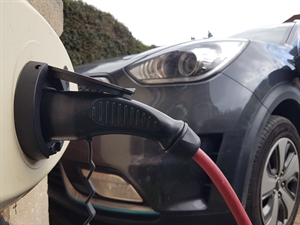New report: battery electric vehicles now match ICE counterparts for longevity
Mon 27 January 2025
View all news

A new study finds that the lifespans of battery-powered electric vehicles now match those of traditional cars and vans with petrol and diesel engines. The study demonstrates that BEVs now have an average lifespan of 18.4 years and can surpass IC-engines in mileage.
The study, published in nature energy was completed by a team of researchers from the LSE, Birmingham University and the Universities of California San Diego and Bern, Switzerland.
Co-author Dr Viet Nguyen-Tien, Research Officer at the Centre for Economic Performance at LSE, commented: “Our findings provide critical insights into the lifespan and environmental impact of electric vehicles. No longer just a niche option, BEVs are a viable and sustainable alternative to traditional vehicles - a significant step towards achieving a net zero carbon future.”
Co-author Robert Elliott, Professor of Economics at the University of Birmingham, commented: "BEVs offer significant environmental benefits, especially as Europe switches to a more renewable energy mix. Despite higher initial emissions from production, a long-lasting electric vehicle can quickly offset its carbon footprint, contributing to the fight against climate change - making them a more sustainable long-term option."
Researchers used nearly 300 million UK Ministry of Transport (MOT) test records charting the “health” of nearly 30 million vehicles on the UK’s roads between 2005 and 2022 to estimate vehicle longevity and provide a comprehensive analysis of survival rates for different powertrains.
The international research team found that, although early BEVs were less reliable than internal combustion engine vehicles (ICEVs), rapid advances in technology have enabled newer BEVs to achieve comparable lifespans, even under more intensive use.
Related Links
< Back to news list